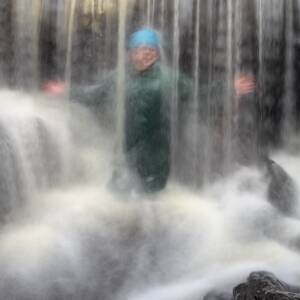a sang for Joni
Last night I went to Pilgrimer. It was Joni Mitchell's Hejira reworked through the Scots poet James Robertson. It wasn't him translating her words into Scots, but capturing the themes and rhythms of each one and working these through his own experience, with a particular debt he owed to Mitchell and this album. It is an album of travelling across North America and it was something he did a little later and it made him the artist he's become. It made him a Pilgrimer.
It was a magical evening. What struck me most (apart from the fine musicians and their rendering of the words and music) was the way this world reknowned music breathed alongside the local language we seldom heard in art growing up.
At school they tried to (literally at times) beat Scots out of us. It was seen as speaking poor English and a sign of poor character. It's 'head' not 'heid' was one of many that I was punished for, as if I had merely mispronounced the word, instead of it being a whole different word describing the same thing. So we learned that it remained the language outside the classroom, and, indeed, it is a testament that it survived orally the many attempts to educate it out of us.
Coming to it through the arts then was my first experience of validation to the way I and those around me spoke. We weren't dolts or slovenly English speakers, but speakers of Scots, a language that entered Britain at the very same time as English did through Anglo-Saxon. If you watch the Scandi-dramas in Danish or Swedish it startles you when when Scots words or phrases pop out. "Braw" means good, 'bairn' is child, 'noo' means now, huis means house etc...
The point I'm trying to make is that it is a language with a rich heritage. The Powers-That-Be and Education tried to belt it out of us to be replaced by "the Kings English" and the idea of a correct way to speak.
Anyway... Last night hearing the music of yer ain tongue speaking back tae ye in poetry and sang was jist magic. An instance was Mitchell's sang Hejira (an Arabic term aboot the Prophet Muhammad's (PBUH) flight frae persecution). In Robertson's poem (his metre and phrasing exact tae Mitchell's) it became The FInd, aboot being on the road and lost and found and trying tae find some reason. The very thing baith He and Mitchell were trying tae dae. It opens
Whit is this thing that happens,
this ayewis needin tae explain..
the melody is sung perfectly by Karine Polwart and the sang resolves itself in the final stanza. It went like this:
There is this thing that happens,
and there's nae need tae explain:
ye find yirsel jist sittin there;
ootby, faws the simmer rain.
And so, there's nothin mair tae say. I'm jist sitting here, in recognition.
Onwards!
- 4
- 1

Comments
Sign in or get an account to comment.


